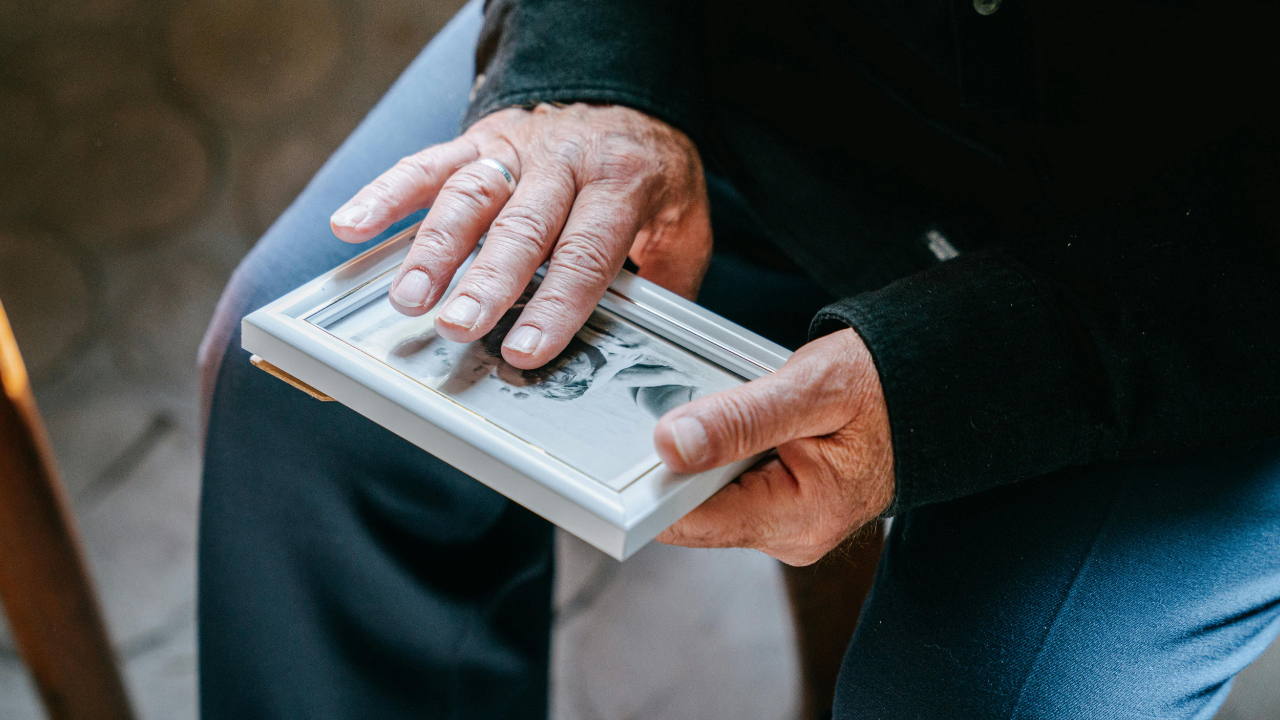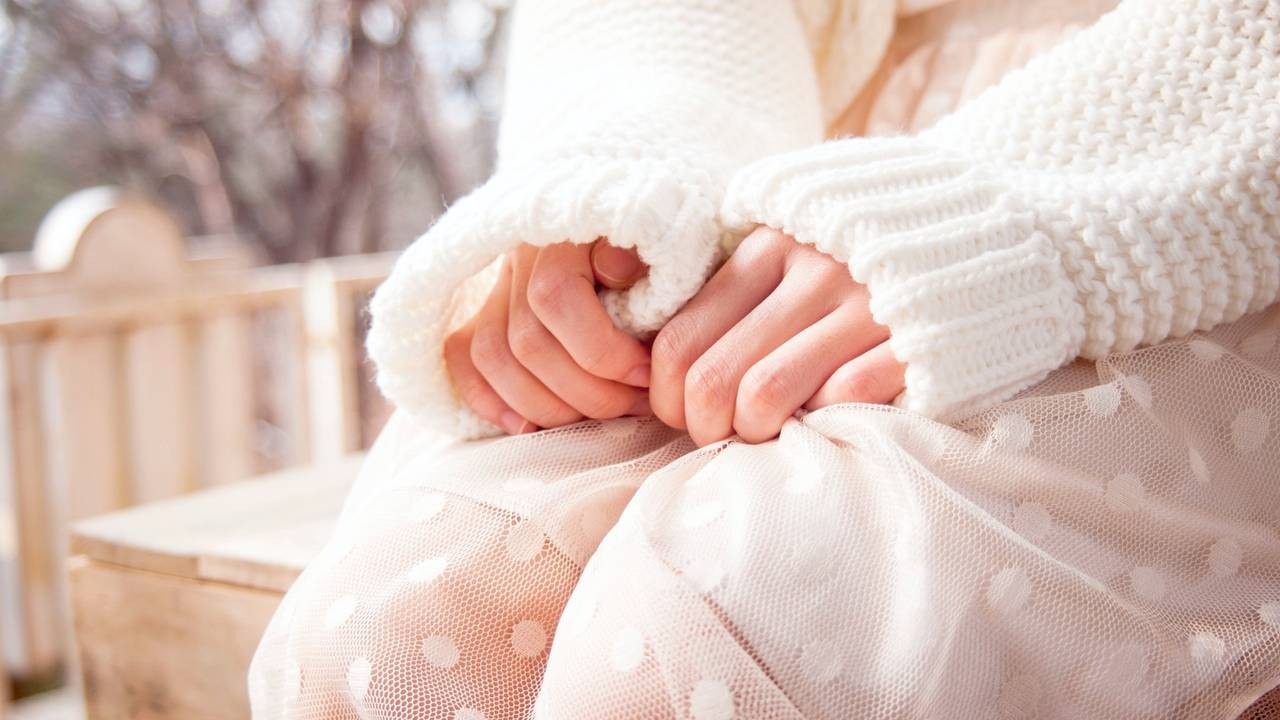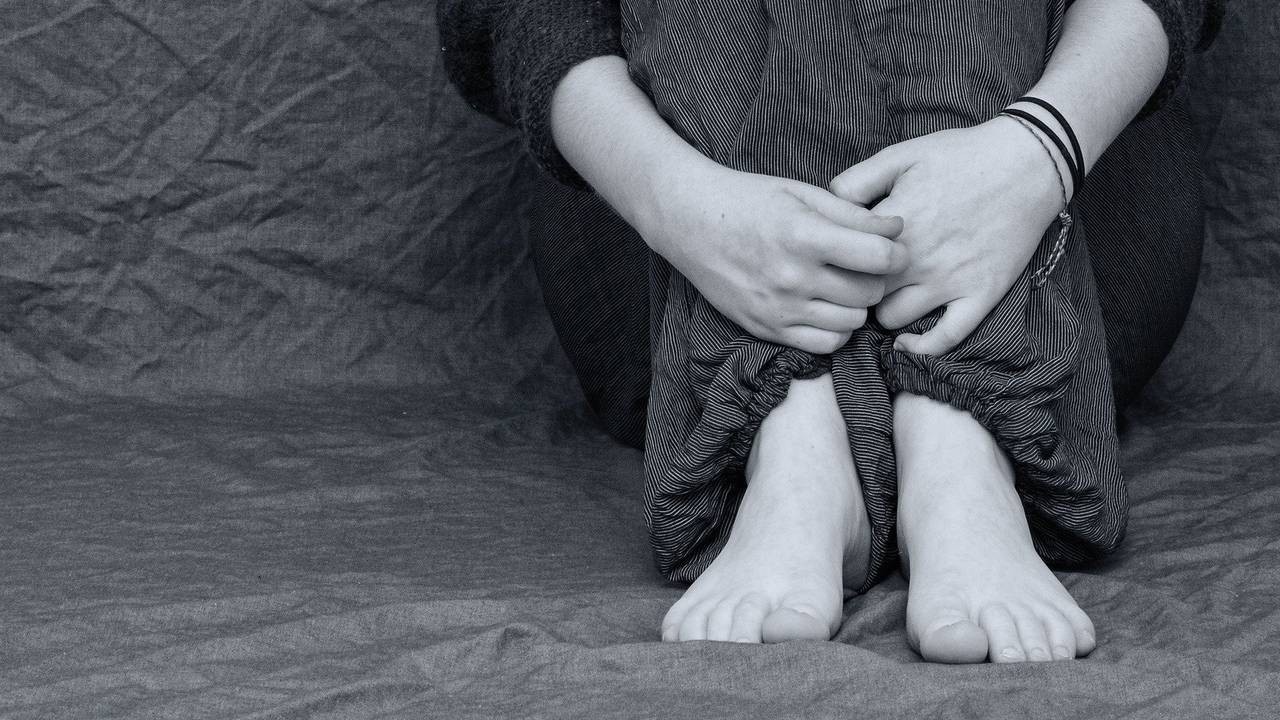Glimmers in Grief: How to Find Moments of Joy in Loss

During grief, we’re engulfed by trauma. Our nervous system goes into overdrive and our days are consumed with fighting grief triggers. From hearing our loved one’s favourite song to stumbling upon an old shirt of theirs, grief triggers can ignite cherished memories that are painful and difficult to process.
However, the concept of ‘glimmers’, introduced by world-leading trauma expert Deb Dana, could prove game-changing in our battle against these triggers and could reshape our grief journey. Often framed as the opposite to triggers, glimmers can help us to find small moments of joy in loss, strengthen our resolve and provide our nervous system with some much-needed relief.
What are glimmers?
Glimmers are not lengthy periods of unbridled euphoria. They are instead, as Dana describes in her 2018 book, ‘The Polyvagal Theory in Therapy’ “micro moments” of peace, happiness or magic that may occur throughout the day - moments which can spark positivity and help us to stay grounded, pre...
The Five Stages of Grief - Why It’s Time to Debunk The Myth

Over the years, one of the most commonly accepted theories for understanding grief has been ‘the five stages of grief’ - first outlined by Swiss-America psychiatrist, Dr Elizabeth Kubler-Ross in her 1969 book, ‘On Death and Dying’. The theory suggests that grief can be understood as a series of sequential emotional stages that we progress through as we confront loss. It’s a theory that has become ingrained in our cultural consciousness and is widely regarded as the go-to instruction manual for processing our feelings of grief. However, this blog will outline why the ‘five stages of grief’ has actually been misinterpreted, how it could in fact be detrimental to our grief journey and how other models may better explain our experience of loss.
What are the five stages of the Kubler-Ross model?
- Denial: a stage characterised by shock, numbness. We might find ourselves pushing back on the reality of our loss, refusing to believe that we’ve lost someone we love.
- Anger: as our grief pre...
Grieving Positively Not Perfectly

I’m often met with confusion and outright disbelief when I mention the words ‘grief’ and ‘positive’ in the same breath. And I get it, because let’s face it, grief is the antithesis of happiness. In fact, the word grief, has its roots in the Latin ‘gravare,’ which means to make heavy or to burden.
When our loved one dies our whole world, our sense of who we are, is ripped from underneath us. We’re left broken and bewildered and the pain that we feel - that deep, aching sense of loss, begins to smother us. Day to day life becomes a matter of survival, of mere self-preservation. We just want to get through it, without expending any additional effort. Our tanks are empty. We simply don’t have anything left to give.
How on earth then, are we supposed to grieve positively?
In this blog, I’ll discuss how grieving positively is not about dismissing or minimising our grief, on the contrary, grief is hard work. It has to be felt and we have to learn to sit with our discomfort in order to unde...
How to Manage Anxiety in Widowhood

For me, anxiety and grief are inextricably intertwined. Bound to one another so completely, it almost feels as if anxiety is one of the unnamed stages of grief. I have yet to meet anyone affected by a significant loss, who hasn’t experienced some kind of anxiety. When we lose someone we love, especially a life partner, all the familiarity, security and comfort we have known is suddenly ripped away from us and we’re thrown into a world we didn’t ask to be in and one that we no longer recognise. As our life shatters, we are left exposed and vulnerable, ever mindful of our own mortality and how little control we have over our own future.
Whilst anxiety is a normal and expected part of the grieving process, burying and avoiding our fears will simply encourage them to escalate. Whilst there’s so much in life we simply cannot exert any control over, we have to recognise what does lie within our control and what we are capable of managing. And, when anxiety does surface, as it will for all o...
Feeling Stuck in Grief: Why it’s Normal and How We Can Release Ourselves From It

Feeling stuck in our grief is something many of us who have lost a loved one have experienced. Struggling under the crushing hopelessness of daily life, feeling trapped in a world in which we are unable to process our loss or build any momentum for the future – life can feel bleak and heavy. As our motivation to grasp and reshape our lives ebbs away and is replaced by a crippling sorrow, we might find ourselves more irritable, more irrational and more prone to overreaction. It may affect our ability to do our job, to parent our children and to hold relationships with those closest to us. However, whilst this can feel debilitating, it need not be permanent.
In this blog, I will explain that whilst feeling stuck in grief is a natural part of the grieving process, there are ways in which you can release yourself from this inertia and create movement in your journey. I will explain how developing acceptance, lowering expectations, avoiding unhelpful comparisons with others and embracing ...
The Choices We Have in Grief

Have you ever heard the phrase, ‘happiness is a choice’? Have you ever been told, in the midst of your grief that you can ‘choose to be happy’, as if it’s actually a choice we have, as if during our grief, we can suddenly flick a switch and just be happy. Such sentiments however well-meaning, oversimplify the nature and complexities of grief and underestimate just how powerful a force it is. Those of us that are grieving want to be happy. Desperately. We want to wake up and feel free from the crushing weight we’ve been under. We want to get through each day and not feel like hiding away from the rest of the world. We are not deliberately choosing to be sad. However, as much as we want to choose to be happy, sometimes we just can’t. Grief is heavy and raw and it can smother us. And working through it takes extraordinary time, effort and attention.
However, whilst choosing to be happy is not something we necessarily have control over, and whilst there are many other things in life that ...
Seasonal Grief: Understanding the Cyclical Nature of Loss

Grief can be difficult to comprehend and explain. As such, using analogies can often help to unpick this topic. The four seasons is one such analogy. It provides a helpful framework within which grief can be better understood. Just as the seasons change, so during grief do our emotions, desires and energy levels fluctuate. The seasons can also affect our mood and our motivation as well as drive specific behaviours.
The following blog will focus on the seasonal nature of grief by exploring how autumn, winter, spring and summer reflect various stages of our grief journey. It will look at how the seasons not only influence our emotions but also present us with invaluable opportunities for self-care and healing.
Autumn
In many respects autumn is considered one of our more beautiful seasons, with the air turning crisp and the trees exploding into colour – ablaze with vibrant orange, red and yellow hues. However, during grief, autumn can feel less captivating and instead feel heavy and f...
Does Grief Last Forever?

I have had many conversations around the question 'Does grief last forever?' recently, It’s a big question, and I want to take this opportunity to explore how long grief lasts within my own story.
What does grief mean and how long can it last?
Is there an end point?
Does it disappear?
Do we reach a place where we are no longer grieving?
Can we grieve without suffering?
Definition of Grief
The definition of grief in Collins Dictionary is ‘a feeling of extreme sadness’. The Cambridge English Dictionary define it as ‘very great sadness, especially at the death of someone’.
These definitions could suggest that once the extreme sadness has passed you are no longer grieving. But, do we ever stop feeling extremely sad when we have lost someone we love? Especially if they have been taken too soon!
I have posted about this topic on my social media (give me a follow in Instagram), and have had mixed responses, understandably. Grief leaves us feeling bereft and exhausted in the early day...
6 Ways to Help Yourself Through Grief

There is no worse feeling in the world than your loved one being taken away from you, it’s crippling and has many ramifications. No little thing that can help soothe the ache of loneliness and nobody can fill the huge void that person has left behind.
The sheer exhaustion we get when grieving can cause us to back away and retreat into our own little world of grief. I have done it, and I still do sometimes, I just want to be left alone to deal with things in my own way. However, this isn’t always helpful to us and we need to be aware of our thoughts, feelings and behaviours. Once we are aware of these things, we can start to notice whether or not something is aiding our healing, or hindering it.
Who we choose to spend our time with can either help us feel less lonely, or result in us feeling lonelier. Throughout this blog I will talk about some of the ways you can help yourself feel a little better and to help you on your grieving journey.
The start of your grieving journey
In the e...

